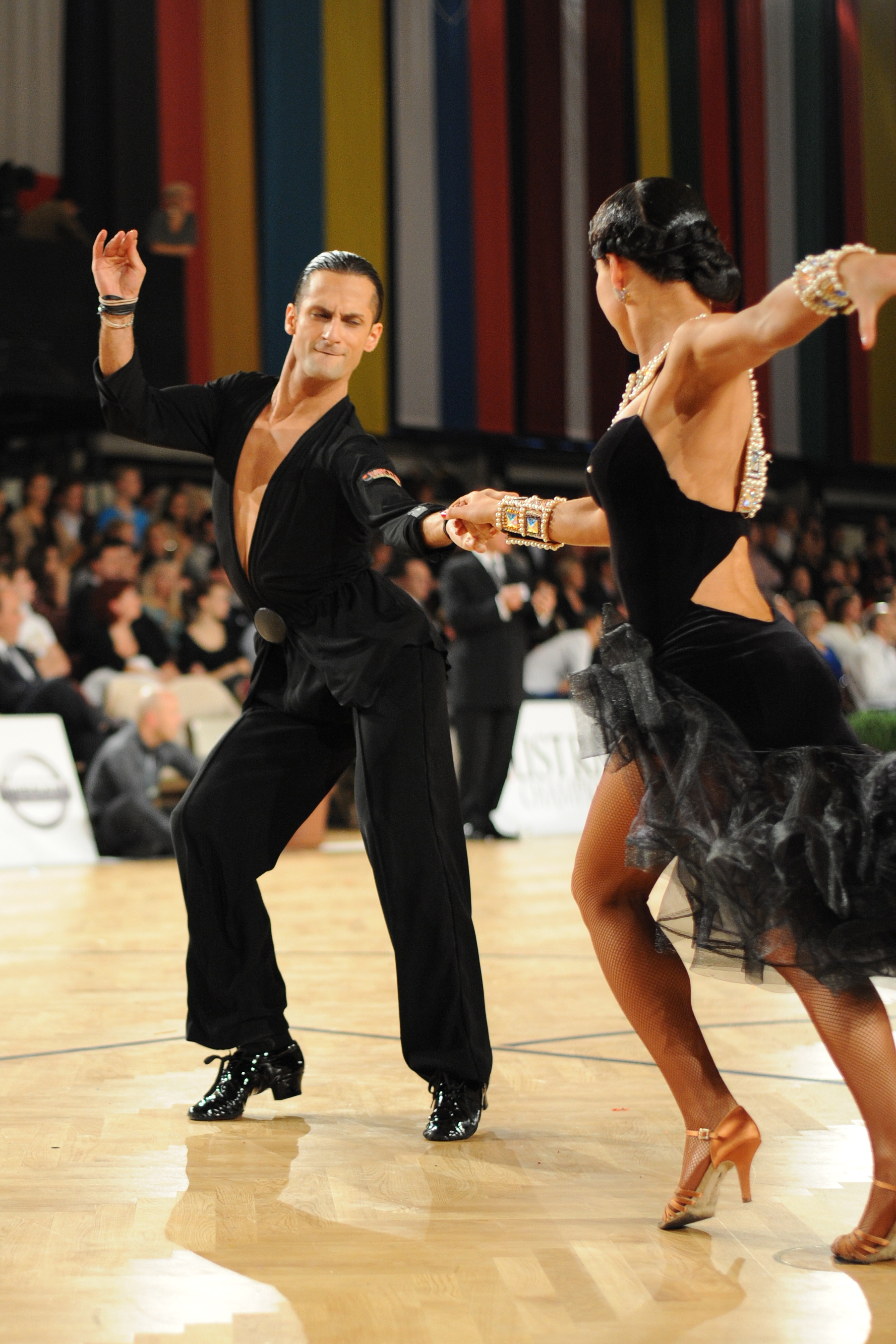Jive (dance) on:
[Wikipedia]
[Google]
[Amazon]
 The jive is a dance style that originated in the United States from the
The jive is a dance style that originated in the United States from the
The Jive Treasure Box - A comprehensive database of Modern Jive moves illustrated
{{Authority control 1930s introductions Ballroom dance Latin dances Swing dances
African American
African Americans (also referred to as Black Americans and Afro-Americans) are an ethnic group consisting of Americans with partial or total ancestry from sub-Saharan Africa. The term "African American" generally denotes descendants of ens ...
s in the early 1930s. The name of the dance comes from the name of a form of African-American vernacular slang, popularized in the 1930s by the publication of a dictionary by Cab Calloway, the famous jazz bandleader and singer. In competition ballroom dancing
Ballroom dance is a set of partner dances, which are enjoyed both socially and competitively around the world, mostly because of its performance and entertainment aspects. Ballroom dancing is also widely enjoyed on stage, film, and television. ...
, the jive is often grouped with the Latin-inspired ballroom dances, though its roots are based on swing dancing and not Latin dancing.
History
To the players of swing music in the 1930s and 1940s, "jive" was an expression denoting glib or foolish talk. American soldiers broughtLindy Hop
The Lindy Hop is an American dance which was born in the Black communities of Harlem, New York City, in 1928 and has evolved since then. It was very popular during the swing era of the late 1930s and early 1940s. Lindy is a fusion of many danc ...
/jitterbug
Jitterbug is a generalized term used to describe swing dancing. It is often synonymous with the lindy hop dance but might include elements of the jive, east coast swing, collegiate shag, charleston, balboa and other swing dances.
Swing danc ...
to Europe around 1940, where this dance swiftly found a following among the young. In the United States, "swing" became the most common word for the dance, and the term "jive" was adopted in the UK. Variations in technique led to styles such as boogie-woogie
Boogie-woogie is a genre of blues music that became popular during the late 1920s, developed in African-American communities since 1870s.Paul, Elliot, ''That Crazy American Music'' (1957), Chapter 10, p. 229. It was eventually extended from pi ...
and swing boogie, with "jive" gradually emerging as the generic term in the UK.Paul Bottomer. 1997. Black Dog & Leventhal. page 157.
See also
*Modern Jive
Modern Jive is a dance style derived from swing, Lindy Hop, rock and roll, salsa and others, the main difference being the simplification of footwork by removing syncopation such as chasse. The term "French Jive" is occasionally used instead, ref ...
References
External links
*The Jive Treasure Box - A comprehensive database of Modern Jive moves illustrated
{{Authority control 1930s introductions Ballroom dance Latin dances Swing dances